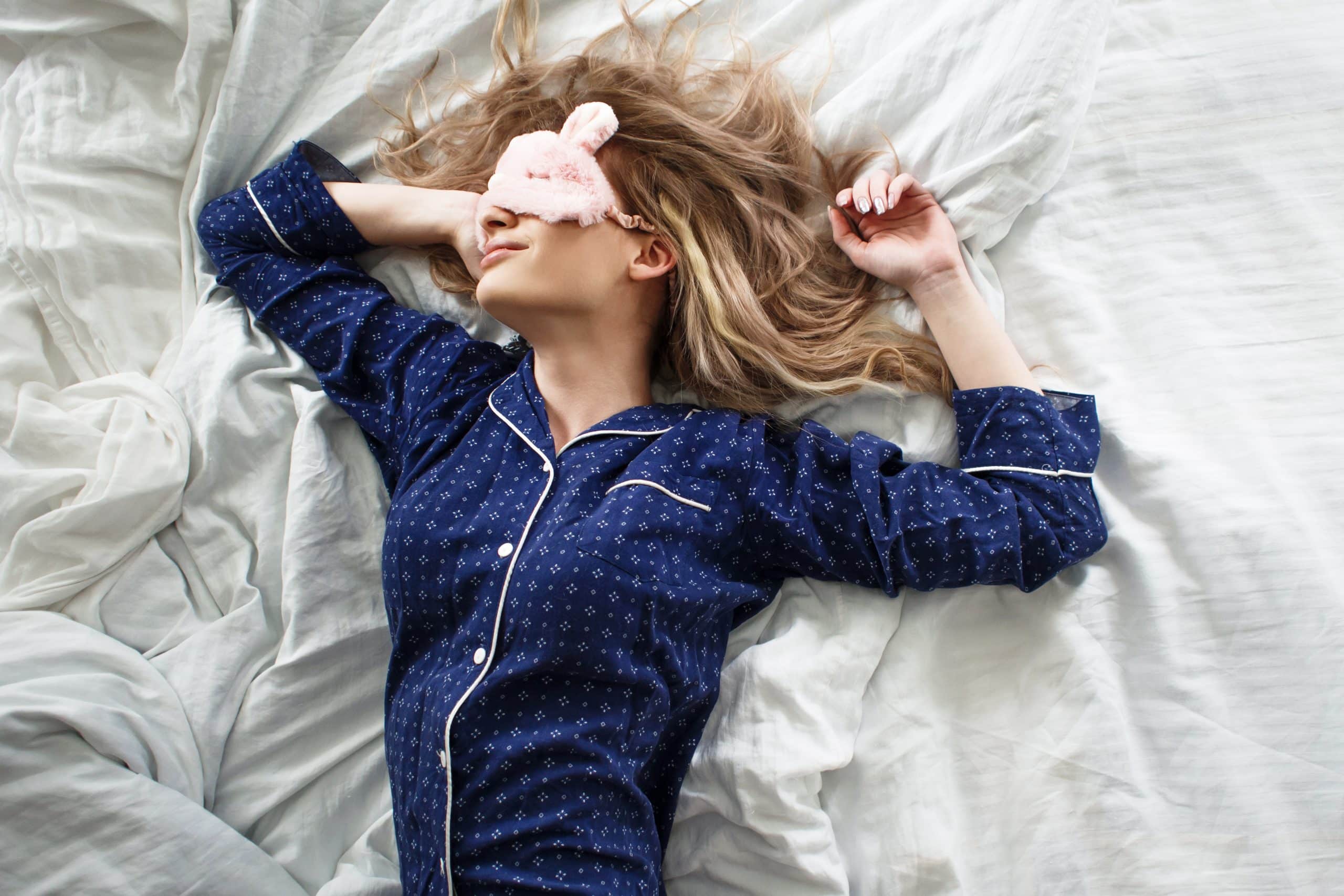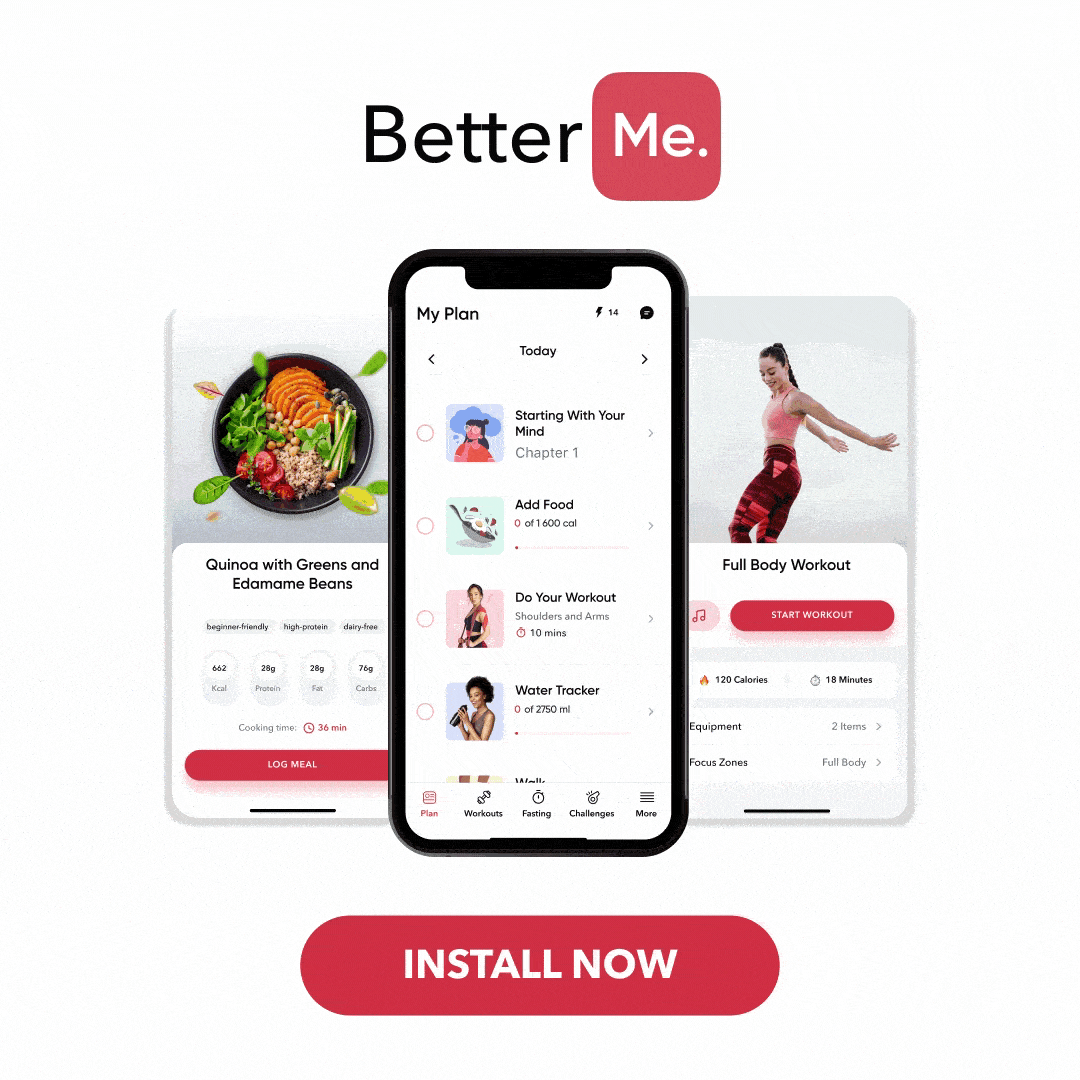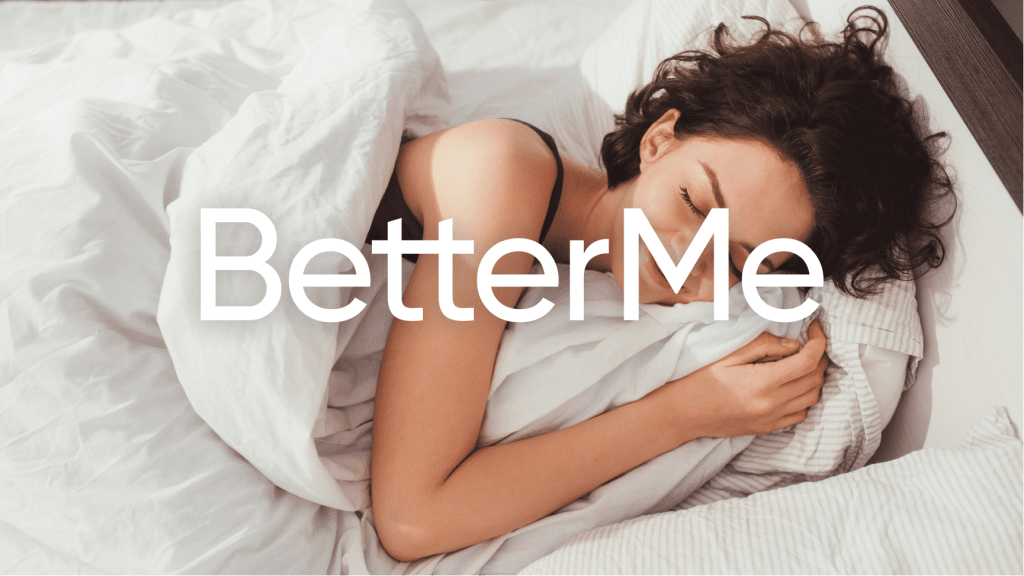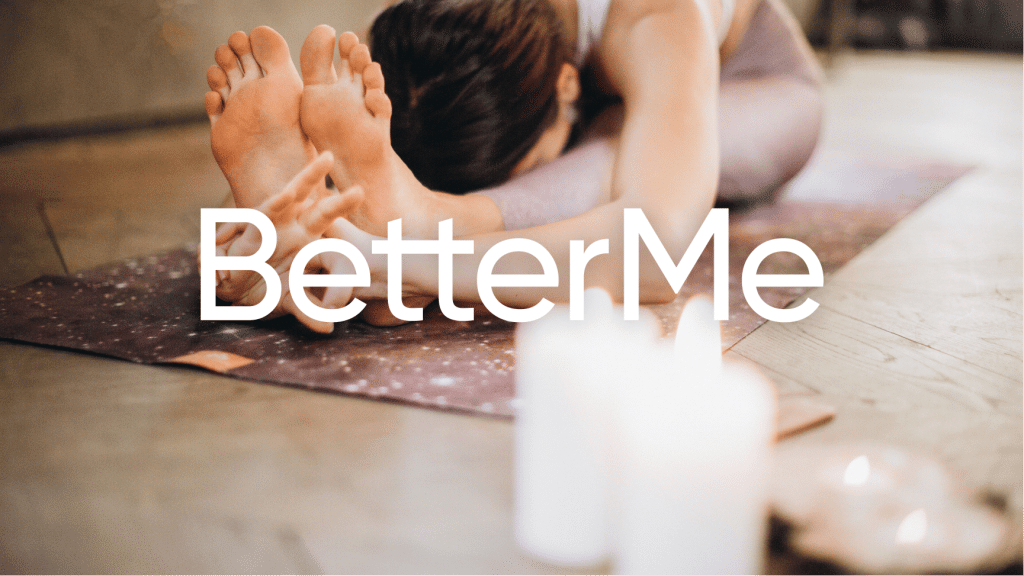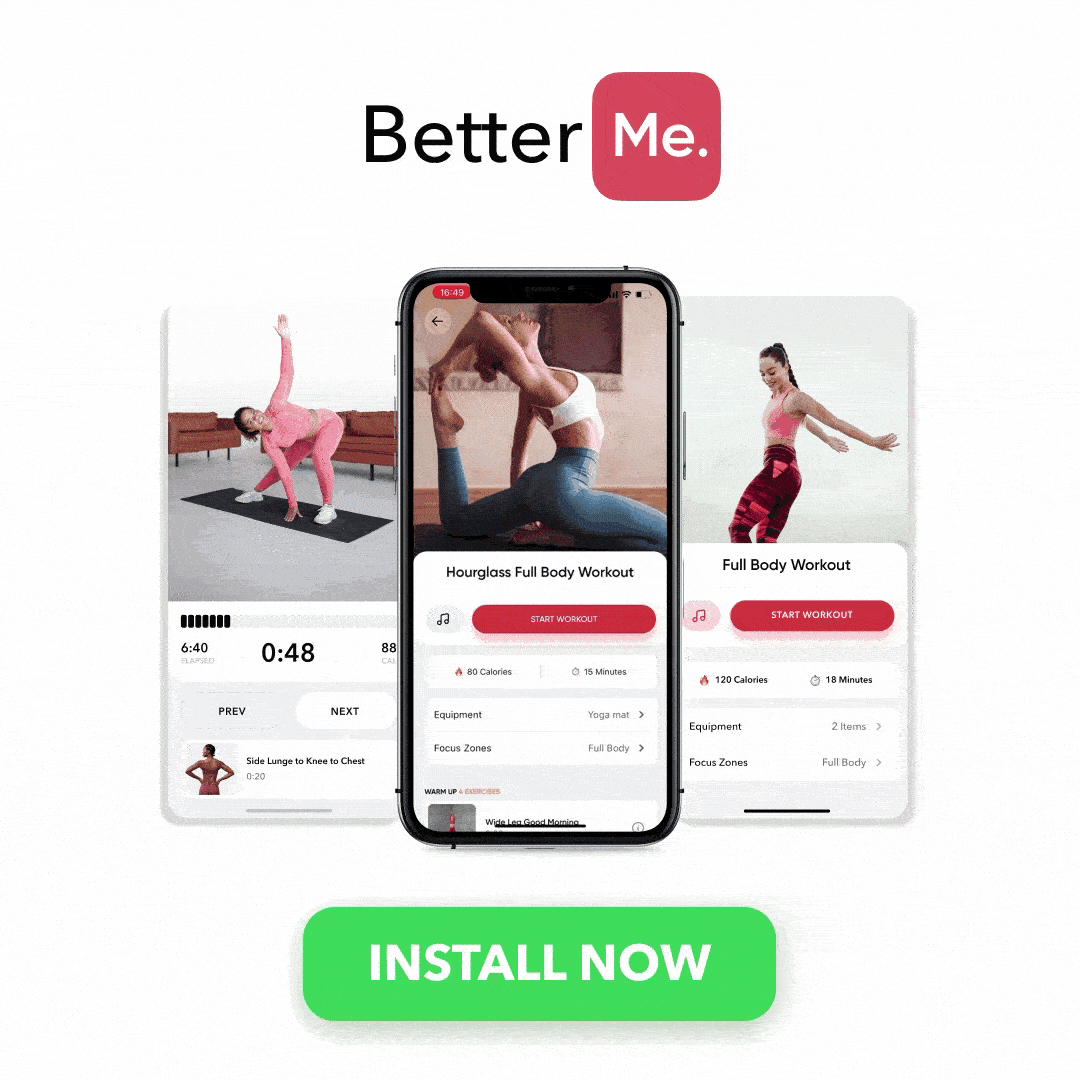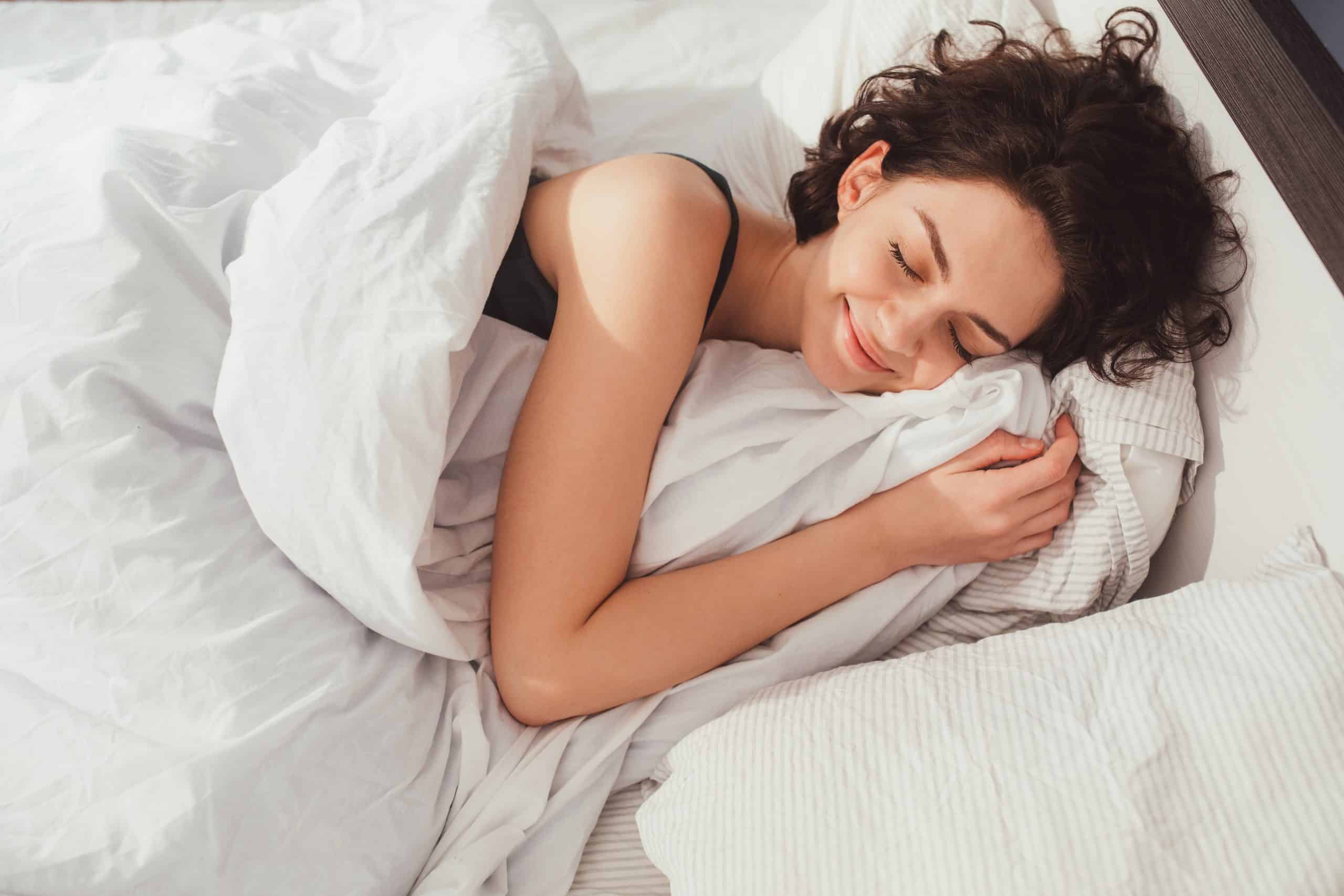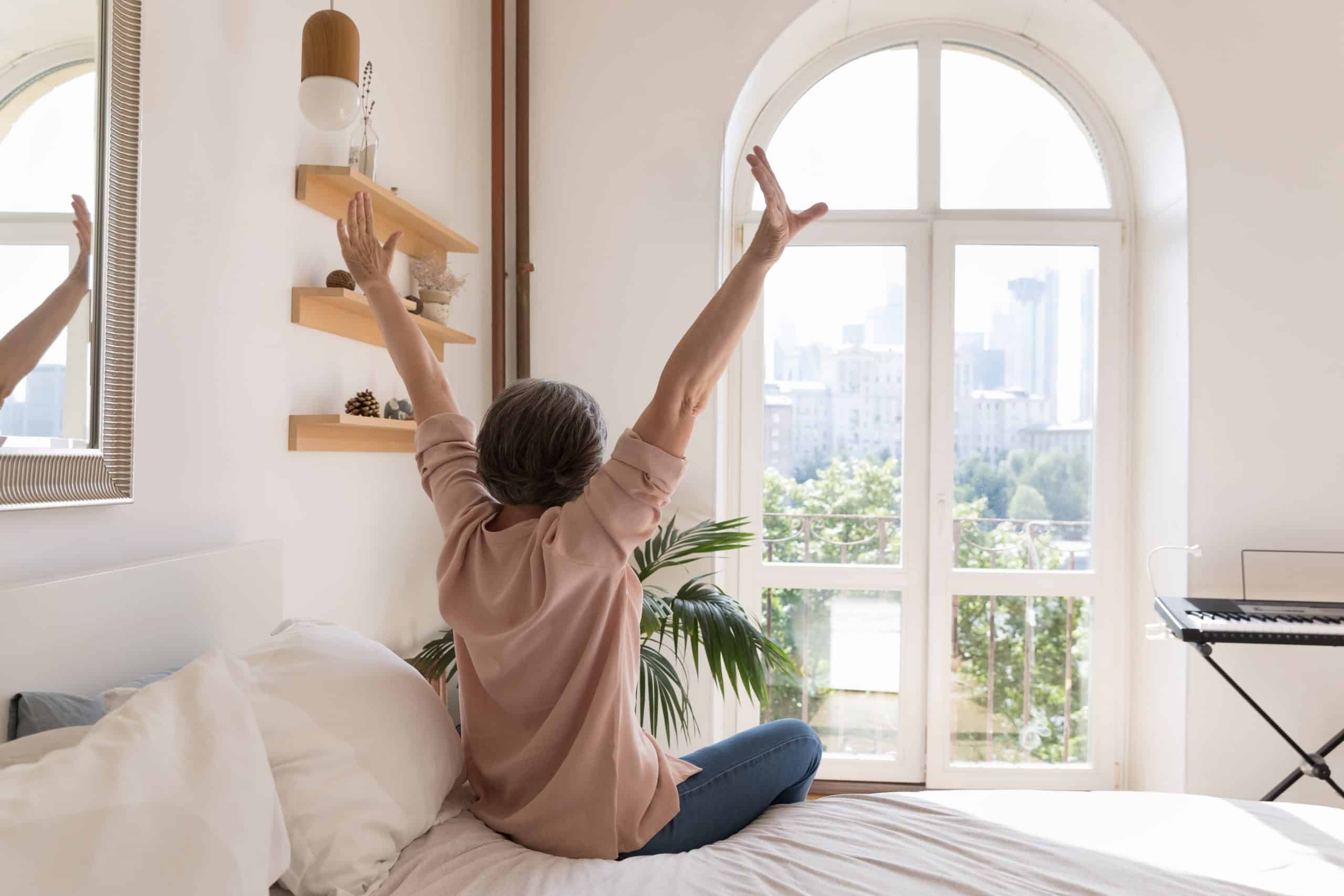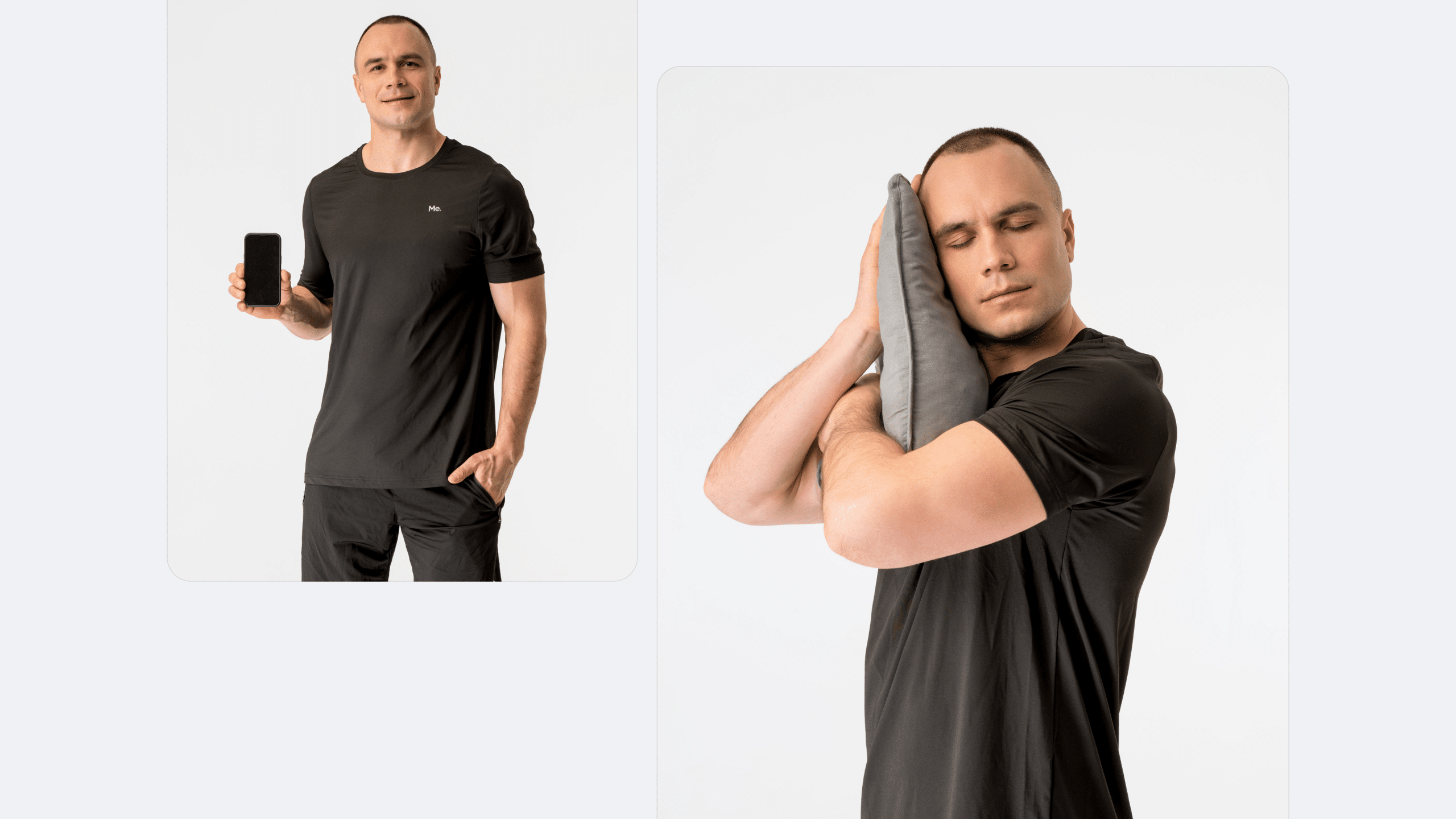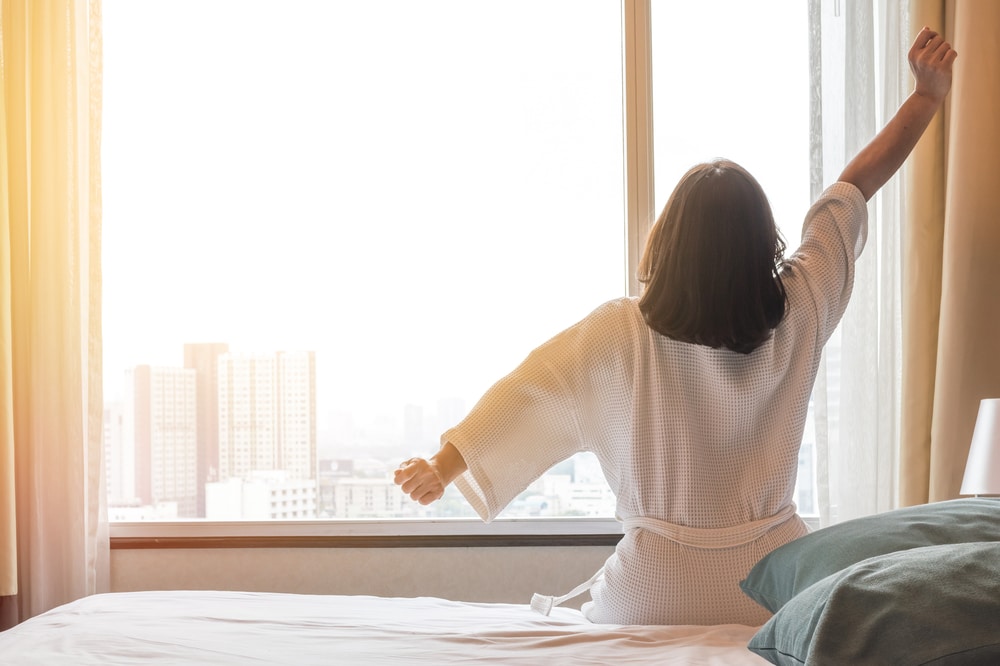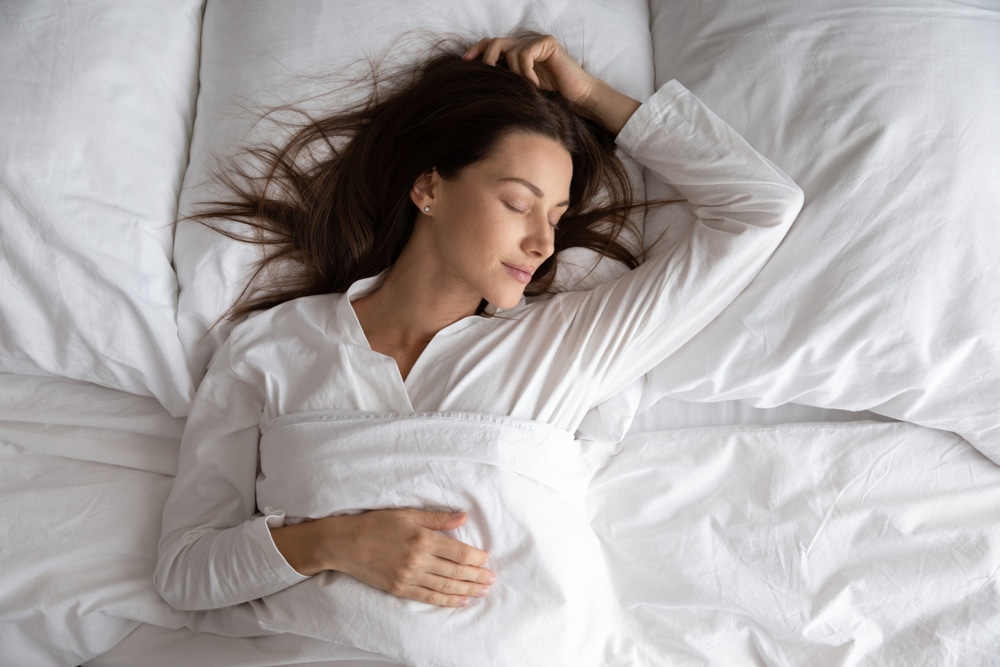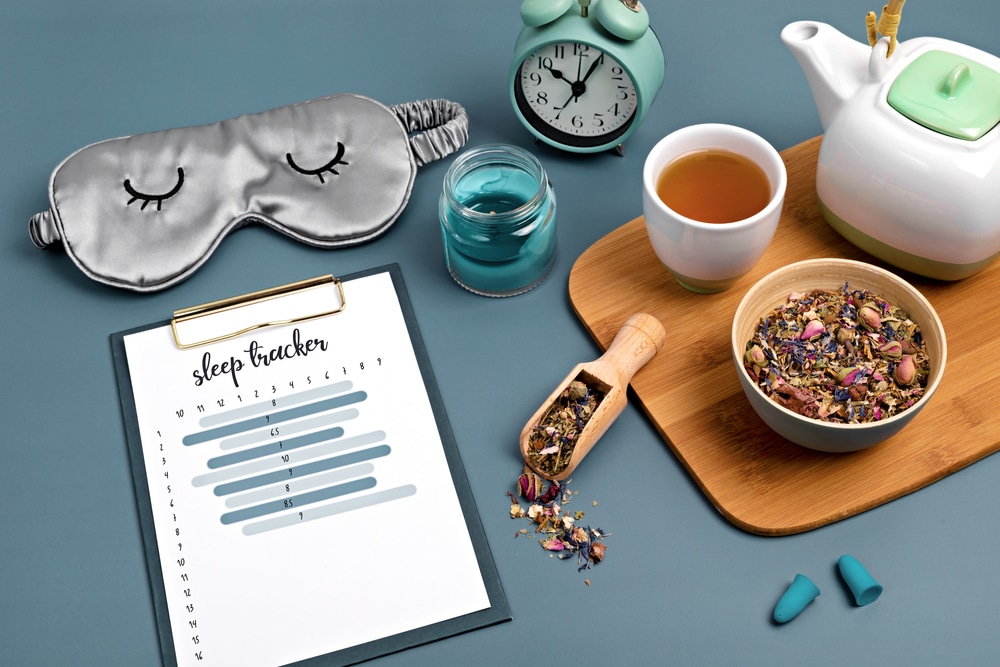According to recent statistics, almost 1 in 3 adults suffer from insomnia or other sleep disorders (1). Some of these struggle to fall asleep, while others wake up several times during the night. Not getting enough sleep can lead to serious health problems such as depression, high blood pressure, and weight gain. Even worse, chronic sleep deprivation can lead to a much higher risk of chronic medical conditions, including heart disease and stroke (4). Fortunately, there are plenty of natural and tech-based tricks that you can use to get a good night’s rest. In this article we’ll dive deep into what counts as a good night’s sleep, the factors that can make sleeping difficult, and the sleep tricks you can use to get some restful shut-eye.
What Counts As A Good Night’s Sleep?
Most people need between 7 and 9 hours of sleep to feel well-rested (6). That said, the amount of sleep that is right for you may vary slightly, depending on your age, lifestyle, and overall health.
According to the National Sleep Foundation, teens should generally get 8 to 10 hours of sleep each night, while adults need 7 to 9 (5).
The Foundation lists several signs that your sleep is healthy (7):
- You fall asleep within 30 minutes of going to bed.
- You wake up no more than once during the night. When you wake up, you are able to get back to sleep quickly.
- You feel well-rested in the morning and throughout the day.
- You can concentrate while performing tasks throughout the day.
- You don’t rely on caffeine to stay awake throughout the day.
- You don’t feel irritable, emotionally sensitive, or confused during the day.
- You don’t experience intense cravings, skin breakouts, puffy eyes, or chronic headaches.
Of course, some of these signs may be affected by other factors, such as diet or stress. However, if you notice that you are consistently experiencing any of these issues, it’s probably a sign to take a closer look at your sleep habits.
Read More: Sleeping With Legs Elevated: Why And How To Do It
Why Is Sleeping So Difficult?
Pop culture often portrays sleep deprivation as a badge of honor. After all, it seems impressive to be able to work late into the night and make it through the next day without much of any sleep. You’ve probably seen someone who identifies as a “night owl” and claims to function just as well on 4 hours of sleep as they do on 8. Or one who isn’t a morning person until they’ve had their coffee.
But the reality is that some lifestyle factors can make sleeping difficult. The Sleep Foundation outlines several common culprits (12):
- Poor sleep hygiene – are you investing enough time and effort into creating a comfortable sleep environment? Do you know which foods, beverages, activities, and phone habits are most disruptive?
- Mental health conditions – stress, depression, anxiety, and other mental health issues can make it harder to fall asleep or remain asleep.
- Chronic health conditions – such as arthritis, asthma, acid reflux, and diabetes can cause pain or discomfort during the night.
- Medications – some medications, such as antidepressants and beta-blockers, can interfere with the quality of your sleep.
- Undiagnosed sleep disorders – such as sleep apnea or restless leg syndrome can make it harder for you to stay asleep.
Which Sleep Tricks Can Help?
Sleep deprivation can become a vicious cycle—you can’t sleep, so you’re tired the next day, leading to more difficulty falling asleep. Fortunately, we’ve curated a list of sleep tricks that can help break the cycle and get you back on track.
Understand Sleep Cycles
A restful night comprises several sleep cycles which together create the solid foundation for an energized morning.
Generally speaking, a full night’s rest consists of four to five sleep cycles, with each cycle lasting around 90 minutes. These sleep cycles are composed of four stages: stage 1, 2, 3 and REM (rapid eye movement).
Stage 1 is the lightest phase of sleep and serves as a transition from wakefulness to deeper sleep. During this stage, the heart rate begins to slow and eye movement comes to a stop.
Stage 2 is where most of our time is spent in sleep and is a period of light sleep where the heart rate slows and body temperature decreases. While this stage is still considered “light” sleep, it can be difficult to awaken from it.
Stage 3 is the deepest and most restorative stage of non-REM sleep. It is characterized by slow brain waves (delta waves) and no eye movement.
REM sleep is the final stage of the sleep cycle when dreaming occurs. During this stage, the eyes move rapidly and breathing becomes more rapid, irregular and shallow. This stage is also associated with increased brain activity.
By understanding the four stages of sleep, we can better understand why it is so important to get a full night’s rest and how our bodies are rejuvenated during sleep.
If you wish to free yourself from all the extra pounds that have been weighting you down for way too long, start using the BetterMe app and overhaul your entire life!
Track Your Sleep
One of the best ways to understand your sleep patterns is to use a device that tracks your sleep. Whether you choose an app, a sleep tracker, or a fitness device, this technology can provide valuable insights about your nightly rest.
You may find that you are waking more often than you realized, or that you are entering deep sleep later in the night than is ideal. Tracking your sleep can also be a helpful tool to identify potential triggers for your restlessness and help you adjust accordingly.
We highly recommend the BetterMe Band (2). This device will analyze the amount of time during which you had a light and deep sleep at night, so you can better understand your sleeping patterns. Why does this matter?
Remember we mentioned that sleep and wellness are closely related—that morning grogginess, listless afternoons, and cranky evenings may be a sign that you’re not getting enough quality sleep. But they could also be a sign of an underlying health condition.
With the BetterMe Band, you can conclusively determine which of the two is the culprit.
Plus, it works in perfect sync with the BetterMe: Health Coaching app, which gives you a personalized health plan that covers everything you need to reach your fitness goals (3). These include your workouts, meal plan, built-in trackers, coach support, and more. Think of it as your 24/7 companion to getting the sleep you need and achieving your health goals.
Identify And Address The Causes Of Poor Sleep
In addition to tracking your sleep, it’s also important to identify and address any potential causes of poor sleep. If you:
Struggle to fall asleep, you might be (12):
- Drinking caffeine too late in the day
- Exposing yourself to blue light before bed
- Eating a heavy meal or sugary snack right before bed
- Not sleeping in a comfortable environment
Wake up frequently during the night, you might be (11):
- Dehydrated
- Experiencing stress or anxiety
- Sleeping in a noisy environment
- Suffering from allergies or respiratory issues
Wake up tired, you might be (9):
- Not getting enough sleep
- Waking up during REM sleep
- Sleeping in a room that is too warm
- Sleeping on an uncomfortable mattress or pillow
Feel groggy during the day, you might be (9):
- Experiencing a sleep disorder
- Having irregular sleeping schedules
- Not getting enough sleep
- Taking medications that interfere with sleep
Once you’ve identified potential causes of poor sleep, there are several steps you can take to address them. These range from simple lifestyle changes such as avoiding caffeine late in the day or creating a sleep-friendly environment, to seeking medical help for underlying conditions.
The BetterMe Band and its accompanying app can also be invaluable in supporting your efforts to get a better night’s rest. With it, you can:
Get In More Physical Activity
Exercise is closely linked to better sleep. The BetterMe Band can track your physical activity levels throughout the day and even provide helpful reminders to get moving (2). This can help you stay active and get the sleep you need.
Read More: Why Do My Muscles Tighten Up When I Sleep? (Causes & Solutions)
Eat Healthy
The food you eat can also have a big impact on your sleep. Research suggests that certain foods, such as complex carbohydrates, can help you sleep better. Others, such as sugary snacks and foods high in fat, can disrupt your sleep (8).
The BetterMe app can provide you with customized meal plans that will keep you energized throughout the day and help you sleep better at night (3).
Reduce Stress Levels
Stress can be a major factor in poor sleep (10). The BetterMe app can help by offering calming meditations, breathing exercises, and guided relaxation sessions that can lower your stress levels and help you sleep soundly (3).
Sync your BetterMe Band with the app and get customized recommendations based on your daily activities.
Sleep Tracking Dos And Don’ts
We’ve discussed how to determine sleep quality, and what to do if you’re having difficulty sleeping. Now let’s look at some practical tips for tracking your sleep with a tech device like the BetterMe Band.
DO: Use Your Sleep Tracker To Measure The Quantity Of Your Sleep
How long you sleep is just as important as the quality of your sleep. Keeping track of the amount you get each night with a sleep tracker can help you determine if you’re getting enough sleep.
DO: Use Your Sleep Tracker To Monitor Trends
Sleep trackers can also help you identify patterns in your sleeping habits. For example, if you note that you tend to sleep better on days you’ve worked out or eat a healthy breakfast, you can make the necessary lifestyle changes to ensure better sleep.
DO: Use Your Sleep Tracker To Develop Habits
Sleep trackers can be used to help you develop good sleep habits. For example, if you find that reading for 10 minutes before bed helps you sleep better, you can make it a nightly habit.
Yanking yourself back in shape has never been so easy with our game-changing fitness app! Start transforming your life with BetterMe!
DON’T: Use Your Sleep Tracker For Sleep Cycle Analysis
Your sleep tracker can’t tell you if you’ve woken up during the REM cycle or what percentage of your sleep is deep vs. light.
To get that information, you’ll need a clinical sleep evaluation (which is typically conducted in a sleep lab). The tracker can tell you whether you slept well or not, but it can’t tell you why.
DON’T: Obsess Over The Numbers
It’s important to remember that sleep trackers are intended to help you make changes, not to serve as a source of stress or anxiety.
If you start to feel overwhelmed by the numbers or become too focused on them, it’s time to stop and talk to your doctor about the best way to improve your sleep.
DO: Use Your Data To Talk To Your Doctor
Finally, it’s important to remember that sleep trackers are meant to supplement professional medical advice.
If you have any concerns about your sleep, talk to your doctor. They can use the data from your sleep tracker to help them diagnose potential issues and create a plan of action that’s tailored to you.
The Bottom Line
A good night’s rest is essential for good health. Tracking your sleep with a device like the BetterMe Band can help you make the necessary lifestyle changes to ensure you’re getting enough quality shut-eye each night.
With the app’s personalized recommendations, you can make better informed decisions about your sleep and ultimately get the restful nights you need to live a healthier life.
DISCLAIMER:
This article is intended for general informational purposes only and does not address individual circumstances. It is not a substitute for professional advice or help and should not be relied on to make decisions of any kind. Any action you take upon the information presented in this article is strictly at your own risk and responsibility!
SOURCES:
- 1 in 3 adults don’t get enough sleep (2016, cdc.gov)
- BetterMe Band (n.d., betterme.world)
- BetterMe: Health Coaching App (n.d., betterme.world)
- Extent and Health Consequences of Chronic Sleep Loss and Sleep Disorders (n.d., nih.gov)
- How Much Sleep Do We Really Need? (2022, sleepfoundation.org)
- How Much Sleep Do You Need? (n.d., helpguide.org)
- How To Determine Poor Sleep Quality (2022, sleepfoundation.org)
- Influence of Dietary Intake on Sleeping Patterns of Medical Students (2019, nih.gov)
- Sleep inertia: current insights (2019, nih.gov)
- Stress and Insomnia (2022, sleepfoundation.org)
- Waking Up in the Middle of the Night (n.d., webmd.gov)
- What Causes Insomnia? (2022, sleepfoundation.org)
